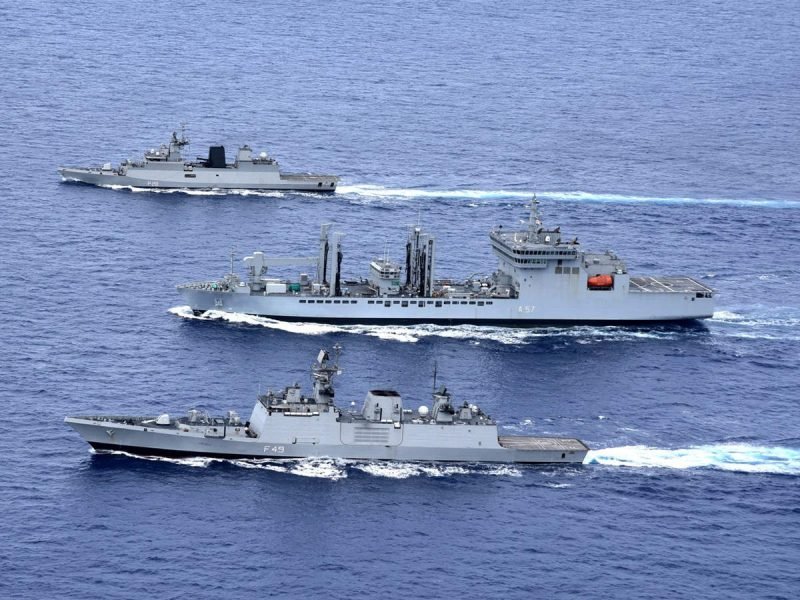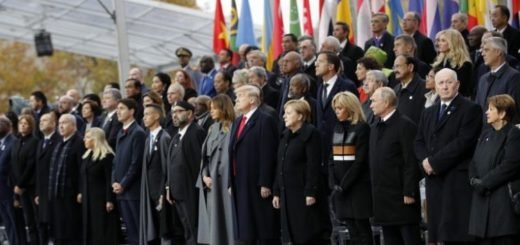Malabar 2020: Australia joins the narrative of free, open and inclusive Indo-Pacific

On 6th October, amid the coronavirus pandemic and a tense border situation with the People’s Republic of China, India announced that it is inviting Australia for the 24th edition of the Malabar Exercise. This is only the 2nd time, after a period of 13 years, that Australia will be taking part in this multinational military exercise. The first phase of the exercise has culminated in the Bay of Bengal with the participation by Indian Navy (IN), United States Navy (USN), Japan Maritime Self-Defence Force (JMSDF), and Royal Australian Navy (RAN). The Ministry of Defence announced that the Malabar exercise were “engaging to enhance safety and security in the maritime domain” and they collectively supported a “free, open and inclusive Indo-Pacific” and remained “committed to a rule based international order.”
This offers an opportunity for the member-countries to align their military objectives and find a congruency among their respective maritime policies for the protection of the International Liberal order and Rule of Law, for which, these countries have always stood for. The Malabar Military Exercise was first conducted in the waters near the Japanese Okinawa island. But Australia pulled out of it as it “prioritised its relation with China more valuable”. This was a time marked by recession and followed by the financial crisis of 2008 therefore extracting special focus and resources of nations towards rebuilding economies. China being a key source of exports found itself in a special place during this time of economic collapse.

Changed Times
The geographical location has always given a comparative advantage to Australia and has been a linchpin in Australia’s relation with nations, which, was hedged on a sustained economic development under the American security umbrella under the ANZUS treaty. The high growth after the Financial crisis shows us that the geopolitical alliances driven out by economic dependency was decision worth taking. However, as Robert Orben has rightly said that, “Time Flies. It’s up to you to be the navigator.”
The times have definitely changed and now national security has regained its place as the key player in foreign policies of nations. Indo-Pacific Asia is at the epicentre of the global maritime trade, with about US$5 trillion worth of trade flowing through the South China Sea and the strategic waterways and choke points of south-east Asia annually. Australia’s inclusion in the Malabar exercise at a time when India is involved with the worst border stand-off with china in three which comes as a shot in the arm for the Quad forum. Australia has been hitting China hard regarding its mismanagement of the Coronavirus pandemic and has been a champion in calling for ‘an investigation into the origins of the pandemic’.
Overlapping Interests
The Coronavirus pandemic has seen destruction of lives but at the same time the expansionist nature of countries like China and Turkey was visible because of their actions. This has alarmed nations which have always believed in a rule-based order and sought to protect it. The inclusion of Australia into the Malabar exercise “showcases the deep trust between four major Indo-Pacific democracies and their shared will to work common security interests”, as stated by the Australian Foreign Minister, Miss Marise Payne.
The other key areas where nations align is the fundamental problems with the existing system of Globalisation and there have been a calls for a renewed form of the Globalisation experiment. PM Modi in a video conference with the Danish PM stated the “problem with excessive dependence of supply chain on a single source”, without naming China. Days later, in a web meeting between the trade ministers of Japan, Australia and India have called for creation resistant network of supply chains and have instructed their officials for framing an architecture for the formalisation of this initiative. This initiative is in line with the Export promoting ambitions of Indian Government and will add to the common objectives of divergence of supply chains of many other willing nations.
No to Chinese Hegemony
Australia, because of its national interests always considered the Indian ocean to be divided into two parts, the Western Indian Ocean which trumped the eastern Indian ocean in terms of strategic importance due to the presence of hydrocarbon abundant nations. But in the present world, the ‘China- crisis’ has led to the obsolesce of this strategy and the increase in relevance of the Eastern Indian ocean countries primarily India, Bangladesh and ASEAN nations have compelled Australia to make a revision of its thinking about the Indian ocean. As noted by Dr David Brewster, “A strategy that involved dividing the Indian Ocean in two was never going to work in the long term. There is no sense in slicing in half the key sea lines of communication that run from the Persian Gulf across the Indian Ocean. Strategic competition with China is now happening in the western half of the Indian Ocean just as much as the east.”
This comes helpful when we look at the present alignments between India and Australia along with USA and Japan as among the QUAD nations, India is the only nation with which the US does not have a security treaty. So, a support to India at this time has repercussions in Beijing, which has immediately, after the announcement of Australian inclusion into the Malabar exercise, condemned the QUAD as ‘A NATO-like structure’. Though any such statement holds no value as the Quad group is symmetric in nature and provides a win-win situation for all players. The Malabar exercise is the first step to ‘formalise’ the QUAD informal grouping into a ‘more regularised’ platform which identifies itself as a deterrent against China.

Conclusion
Because of the presence of a Great power and a challenging power, the Indian Ocean Region becomes one the most complicated and troubled areas in the world. This is in accordance with what Hans Morgenthau said, “In the balance of power theory, nations form alliances to offset growing powers and restore the balance”. An alignment with India provides Australia with a superior military interoperability and platform to increase its own role in the global arena. How the Malabar exercise fares out in the future will be a key in driving this alliance against nations disrupting International peace and order. Given the bleak future for the Sino-American relation, a congruency between the middle powers and the US is inevitable due to similar strategic interests.
Australia and India will have a bigger responsibility in charting out the future of this alliance as they are the countries which would gain the most with this symbiotic relationship. A possible induction of other like-minded nations like Vietnam, Philippines and France into the Malabar exercise either as observer states or as permanent members will only make the dictum of “free and open seas” stronger. These countries are not only facing China as a threat but are also are substantial player in the Indo-Pacific. The decision to finally include Australia into the Malabar exercise, by popular sources, has been taken by India, which evidently shows that India has decided to let bygones be bygones and take a renewed view of multilateralism which is driven by national interests. As for Australia, this announcement indicates that the time has come when Australia is ready to rethink its Indo-Pacific strategy and is ready to take a bigger role in the Indian Ocean Region.
References
- Japan, Australia and India to Launch Supply Chain Initiative
- Australian Rendezvous: Maritime Strategy and National Destiny in the 21st Century by Michael Evans
- Joint Declaration on a Shared Vision for Maritime Cooperation in the Indo-Pacific Between the Republic of India and the Government of Australia –MINISTRY OF EXTERNAL AFFAIRS GOVERNMENT OF INDIA


















